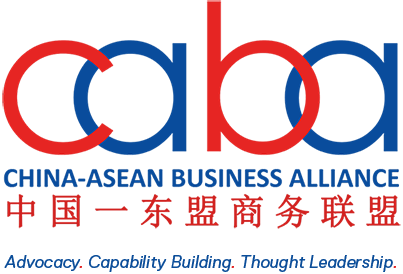WEBINAR: COVID-19: Challenges and Opportunities for Singapore & ASEAN
Agenda:
| 9.00am | Existential Challenges and Collaboration Opportunities in ASEAN Speaker: Teng Theng Dar, Founder of Business Compass Consultancy |
| 10.00am | Evolution of China Outbound Direct Investment – What’s next? Will China pounce on the COVID-19 crisis to buy the dip? Speaker: Than Su Ee, Managing Director of China-ASEAN Investment Cooperation Fund |
| 11.00am | A Post COVID-19 China: new Capital Markets and Industries, and their Relevance to Singapore and Southeast Asia. Speaker: Stephen Ng, CEO of China International Capital Corporation (Singapore) |
| Moderator: Professor Sattar Bawany, CEO & C-Suite Master Executive Coach of the Centre for Executive Education. |
Overview
“Before the outbreak of the coronavirus, the global economy was already slowing because of the trade tensions between the US and China. In the three weeks since I unveiled the Budget, the developments globally have been more negative for the economy as well as for the outbreak of the virus.
So, first, if you look at the outbreak, it seems to be going in waves. You have the first wave that hit China and Singapore and a few countries very quickly. But the outbreak is also spreading to other countries. You are seeing it in all our major partners and all the major economies. And we don’t know how this wave will move.
That, in turn, is triggering concerns in the global financial markets. Uncertainty has grown significantly and sentiments have fallen. That, in turn, is affecting investments, affecting consumption, and affecting linkages across economies.
So you have these two major negatives coming together at the same time, interacting in ways that are quite difficult to predict. Compared to three weeks ago when we were doing the Budget, I think the situation today is worse. And that is the reason why since about 10 days ago, we have started working on the need for a second package to stabilise our economy and to emerge stronger from this.”
Singapore’s Deputy Prime Minister, Mr. Heng Swee Keat at The Straits Times’ and Business Times’ Post-Budget Roundtable on 11 March 2020 [1].
Since China first reported the existence of a new virus to the World Health Organization at the end of 2019, the virus, now known as SARS-CoV-2, causing COVID-19 disease, has spread quickly in the city of Wuhan and throughout the whole of China and over 213 countries globally with 4 248 389 confirmed cases and 294 046 deaths as of 14 May 2020 [2].
COVID-19 increasingly represent a threat to public health and global commerce. The next phases of the outbreak are profoundly uncertain. The prevalent narrative, focused on the pandemic, to which both markets and policymakers have gravitated as they respond to the virus, is possible but underweights the possibility of a more optimistic outcome.
The strongest business leaders are dealing with the short term—by acting rapidly to protect their employees, customers, business, and the public—while anticipating the eventual rebound.
The situation remains fluid and even if the epidemic subsides in the coming weeks and months, how can organizations normalize operations in the aftermath?
COVID-19 could potentially affect the global economy [3] including Singapore and ASEAN markets in several ways:
Direct impact on production:
Chinese production has already been substantially affected by the shutdown in Hubei province and other areas. Some other countries are also beginning to feel a direct impact as their authorities put in place similar measures.
The slowdown in China has effects on exporters to China. China’s largest sources of imports are Korea, Japan, and other Asian countries, according to the World Bank [4]. Thus, even without new outbreaks of the disease, these areas will likely experience slow growth in the first half of 2020.
Supply chain and market disruption:
Many manufacturing firms rely on imported intermediate inputs from China and other countries affected by the disease. Many companies also rely on sales in China to meet financial goals. The slowdown in economic activity—and transportation restrictions—in affected countries will likely have an impact on the production and profitability of specific global companies, particularly in manufacturing and in raw materials used in manufacturing.
For many companies around the world, the most important consideration from the first ten weeks of the COVID-19 outbreak has been the effect on supply chains that begin in or go through China. As a result of the factory shutdowns in China during Q1, many disruptions have been felt across the supply chain, though the full effects are of course still unclear.
For companies that rely on intermediate goods from affected regions, and that are not able to easily switch sourcing, the size of the impact may depend on how quickly the outbreak fades. Small and medium-sized firms may have greater difficulty surviving the disruption. Businesses tied to travel and tourism are facing losses that are likely not recoverable.
The financial impact on firms and financial markets:
Temporary disruptions of inputs and/or production might stress some firms, particularly those with inadequate liquidity. Traders in financial markets may or may not correctly anticipate or understand which firms might be vulnerable. The resulting rise in risk might reveal that one or more key financial market players have taken investment positions that are unprofitable under current conditions, further weakening trust in financial instruments and markets.
A possible (likely low-probability) event would be a significant financial market disruption as participants become concerned about counterparty risk. A somewhat more likely possibility is a significant decline in equity markets and corporate bond markets, with investors preferring to hold government securities (particularly US treasuries) because of the uncertainty created by the pandemic.
Global slowdown:
A global slowdown would affect small and mid-size companies more acutely. Less developed economies would suffer more than advanced economies. And not all sectors are equally affected in this scenario. Service sectors, including aviation, travel, and tourism, are likely to be hardest hit. Airlines have already experienced a steep fall in traffic on their highest-profit international routes (especially in Asia–Pacific). In this scenario, airlines miss out on the summer peak travel season, leading to bankruptcies (FlyBe, the UK regional carrier, is an early example) and consolidation across the sector. A wave of consolidation was already possible in some parts of the industry; COVID-19 would serve as an accelerant.
In consumer goods, the steep drop in consumer demand will likely mean delayed demand. This has implications for the many consumer companies (and their suppliers) that operate on thin working-capital margins.
Key Takeaways
This seminar will include the latest research findings on the recommendations to resolve the various organizational and leadership challenges that have a direct impact on the sustainability of organizations of all sizes across various industries in global markets including the greater Asia Pacific region.
The speakers in this Forum will provide business leaders with a perspective on the evolving situation and the challenges and implications for their companies and the prevailing opportunities in Singapore and the greater ASEAN region.
They will also discuss the following issues:
– The impact of COVID-19 on supply chain and production of businesses across diverse industries impacts
– Explore ways to instill trust among stakeholders that the organization can be resilient and secure in the face of the epidemic or other disruptive events.
– Evaluating the effects of COVID-19 and responding with vigilance, whatever the epidemic’s trajectory
– Adapting business continuity plans to address business interruptions with speed, agility, and security
– Anticipating and adjusting to cash-flow and credit management dynamics that might change amid disruptions
Speakers
 |
Teng Theng Dar Founder of Business Compass Consultancy (Business Strategy Advisory Services) |
 |
Than Su Ee Managing Director of China-ASEAN Investment Cooperation Fund (CAF) |
 |
Stephen Ng CEO, China International Capital Corporation (Singapore) |
 |
Moderator : Professor Sattar Bawany Chief Executive Officer & C-Suite Master Executive Coach of the Centre for Executive Education (CEE) |
Click here to view profile of Speakers and Moderator.
Contact Person : Lao, Brey at brey.lao@rhtacademy.com
SAVE THE DATE THE 2ND CABA SERIES!
[1] The Straits Times’ and Business Times’ Post-Budget Roundtable , 11 March 2020. Assesed on 12 March 2020 from https://www.businesstimes.com.sg/government-economy/singapore-budget-2020/all-hands-on-deck-as-singapore-tackles-covid-19-and
[2] WHO Coronavirus disease 2019 (COVID-19) Situation Report – 115 as at 14 May 2020. Assessed on 14 May 2020 from https://www.who.int/docs/default-source/coronaviruse/situation-reports/20200514-covid-19-sitrep-115.pdf?sfvrsn=3fce8d3c_4 and https://www.who.int/emergencies/diseases/novel-coronavirus-2019/events-as-they-happen
[3] Adapted from Deloitte Insight Report, “The Economic Impact of COVID-19 (novel coronavirus)”, 3 March 2020, Assessed on 12 March from https://www2.deloitte.com/us/en/insights/economy/covid-19/economic-impact-covid-19.html
[4] The World Bank, “World Integrated Trade Solution,” accessed on 12 March 2020 from https://wits.worldbank.org/Default.aspx?lang=en




Recent Comments